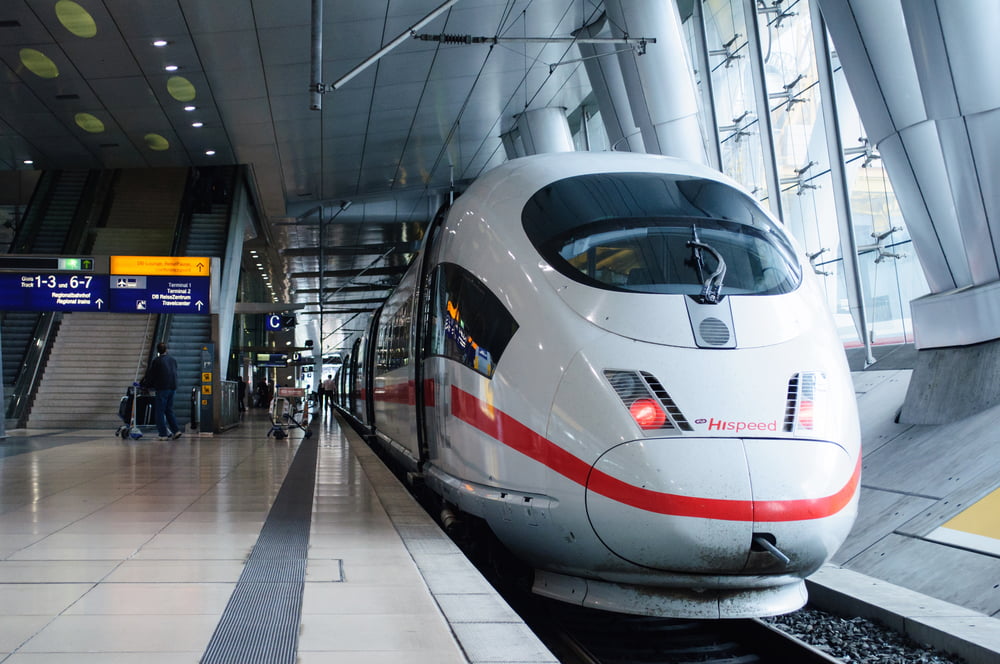Business train travel is gaining more and more ground on short distances.
The preference for the train among business travelers for destinations within a radius of 400 kilometers is increasing. From a recent one study of Nature & Environment and the Coalition for Different Travel, which analyzed travel data from major Dutch employers, has shown that the international train is becoming an increasingly popular option.
In the period from June 2022 to July 2023, cities such as Brussels, Paris, Frankfurt, London, Hamburg, and Luxembourg were the top destinations for train travel. This trend, in which trains are becoming increasingly popular at destinations up to 400 kilometers away, results in a reduction of 8 to 10 times less CO2 emissions per kilometer compared to air travel. The data, provided by 22 large Dutch companies, underlines this trend.
A comparison of the data from the pre-covid year 2019 with the period June 2022 to July 2023 shows striking growth. At six companies surveyed, the share of train trips to these popular destinations has increased from just over 50% in 2019 to more than 80%. Also notable is the increase in the number of train journeys to Berlin, where a growth from 4% to 50% was registered.
Rob van Tilburg, Director of Programs at Natuur & Milieu, emphasizes the advantages of this shift: “On routes up to 400 kilometers, the plane can very well be replaced by the train. It is great to see that many companies are taking the step towards more sustainable business travel and using the alternative. The train causes less nuisance, the air remains cleaner and it causes less climate damage.”
The European Commission has expressed the ambition to double the number of passengers on high-speed trains by 2030. This fits within the EU's broader strategy to reduce greenhouse gas emissions and achieve the objectives of the European Green Deal.

While the train is becoming an increasingly attractive option for short to medium distances, challenges remain, such as the need for better connections and more frequent services on certain routes, and the harmonization of ticket booking systems across different countries and railway companies.
Hugo Houppermans of the Coalition for Different Travel points to the positive response from the business community: “The growing demand for train travel provides energy to accelerate. As a company, you can do this by putting the train first in the booking program.” He also notes that some member companies are experimenting with carbon budgets, making the train a logical choice.
The preference for train travel can also be attributed to improved infrastructure and services. European cities are increasingly better connected by an extensive network of high-speed trains, such as Thalys, Eurostar and ICE, offering fast and comfortable travel options. These developments have significantly reduced the travel time between major cities, making the train a more attractive alternative to the plane, especially for distances of up to 400 kilometers.
Business travelers themselves also recognize the benefits of train travel. In addition to lower CO2 emissions, train travel offers other benefits, such as the ability to work during the journey, more comfortable seats and less stringent security procedures compared to air travel. In addition, train stations are often located in the heart of cities, which saves travel time to and from airports and makes it easier to get straight to business appointments.
The companies that contributed to the analysis include APG, Capgemini, Deloitte, Eneco, EY, KPMG, PwC, Strukton, and VodafoneZiggo, in addition to other major players such as the Dutch government and Friesland Campina. Non-members such as Ahold Delhaize and TomTom also participated in the study.
Coalition for Different Travel
The Coalition for Different Travel consists of 70 large employers with a total of more than 550.000 employees. Together they are committed to halving CO2 emissions from business travel by 2030 compared to 2016. Natuur & Milieu is a co-initiator of the coalition and active in various working groups.




